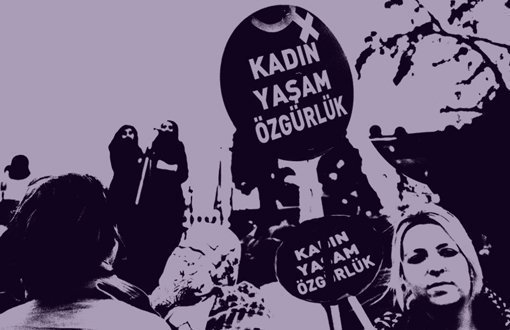"Life is so unfair; I don't know what kind of a world is awaiting us. Young people are unhappy."
All the young people we have spoken to share the concerns of the 27-year-old Mehmet, who is a musician. However, they are all very different; Turkish, Kurdish, Armenian, veiled, homosexual, female, male, educated, uneducated, poor, rich. They don't want adults to dictate their lives and they revolt against being considered as "the other."
20% of Turkey's total population of 72 millions, consists of young people aged between 20-29 years. Research shows that young people are more educated, more open-minded and more liberal compared to the former generations*. Most of the young people interviewed by bianet do not only criticize the injustice and oppression that they face themselves, but they are against all kinds of injustices.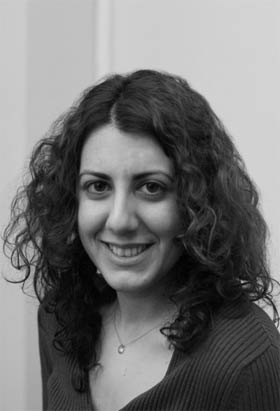
26-year-old Sibil is Armenian and she lives in Istanbul. "My sensitivity is not limited to my own community, to my own oppressed identity," she says. "I react against everything that disturbs my conscience. I walk to protest for the murder of Armenian journalist Hrant Dink, as well as the discrimination against homosexuals."
Those without money cannot go to school
Although 80% of the young people manage to finish high school, the economic status of the family, geographical situation, and gender either facilitate or complicate access to education. In rural areas, only 17 of every 100 young women and only 23 of every 100 young men go to high school.
Ahmet is 27-years-old. He lives in Istanbul and sells stuffed mussels on the streets. He was born in the Kurdish province of Sirnak. For the last 13 years, he has been taking care of his family of 10, who live back in the village.
"Life in the village meant clashes and military operations," says Ahmet. "I was 7 or 8 years-old when the security forces burnt down our village. That day, I came to Istanbul with whatever I was wearing. I couldn't go to school. I don't know how to read or write. I have earned my life as a street vendor. When I have enough money, I would like to go to school."
University students complain about the repressive structure of schools, and the inadequacy of possibilities. 64% of them think that education that is based on memorization is boring and inadequate.
The headscarf obstacle
Headscarfs are banned in universities. Many veiled girls had to either drop out of school, or remove their headscarves.
"I could wear a headscarf at high school as my family had enough money to send me to a private school. I had to remove my headscarf to be able to study sociology at university. The four years I spent 'open' at university wore me out, and at the same time, they made me strong. From now on, nobody can really repress me."
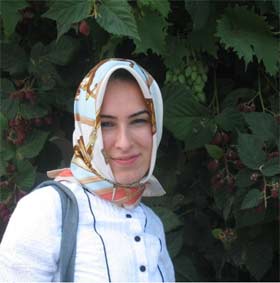 Hatice is 25 years old. She is disturbed by people's approach to her headscarf: "If you had your hair 'covered', you would feel obliged to walk on the very edge of the aisle, and to remain silent during classes. However, I didn't follow these 'rules'. You don't know how to react when you face discrimination or humiliation because of you wear a headscarf."
Hatice is 25 years old. She is disturbed by people's approach to her headscarf: "If you had your hair 'covered', you would feel obliged to walk on the very edge of the aisle, and to remain silent during classes. However, I didn't follow these 'rules'. You don't know how to react when you face discrimination or humiliation because of you wear a headscarf."
Hatice still feels lucky because in Turkey, 32.2% of the young veiled women say that their education rights have been hindered, 29.6% say that they cannot find a job in the private sector, and 20.4% say that they cannot work in the public sector.
Dealing with homophobia is really hard
Berk is 24 years old. He is studying for his masters degree to avoid military service. He wants to settle in a country, where he would be able to live freely as an homosexual, because it is not easy to live in a homophobic society.
"My family is modern, but they do not accept my homosexuality. The degrading of homosexuality in Turkey is directly linked to the insufficiency of women's rights. The same society that looks down on women, does not accept homosexuals as they are considered as being feminine. It is even more difficult for lesbians. In a society dominated by men, a woman cannot be with another woman."
Berk is interested in Sufism. He is furious because even his therapist considers homosexuality as a disease: "They don't believe that Allah could have made such a 'mistake.' However, I am at peace with God, because I believe that God created also homosexuals."
Different common injustices
Nation-state policies, the strengthening of military domination and the rise of nationalistic feelings are threatening different identities. Young people in their 20s, who were born after the 1980 military coup, cannot give sense to what's going on in the country.
Hatice cannot understand the headscarf ban, Ahmet cannot understand why the Kurdish problem is still unsolved, and Berk cannot understand homophobia.
Sibil explains the feelings of Armenian youngsters by saying: "Until the murder of Hrant Dink, the genocide of 1915 was the most important issue of our generation. Now, we feel insecure because of Dink's murder. I believe that the biggest discrimination is to have people living in fear on the land where they were born."
Youngsters do not trust politics. The fact that only 47% of young people read newspaper shows that they neither believe in media. And 1/3 of the young people who read the newspaper say that they only follow the sports pages.
Most of the young people interviewed by bianet think that the media "dictates what people should be thinking, and that its aim is to guide society through comments and to disseminate disinformation."
It is risky to react
There are some people, who react against the injustices and rights violations encountered. Others prefer to remain silent. Those who remain silent state that they are passive because they are not able to find the 'means'. Young people do not have a say in the governance of the country. The minimum age required to be elected in parliament is 25, but the youngest parliamentarians are all over 30.
Mehmet is among the silent community for the following reasons: "I cannot react because when you react, you are at best attacked by the police with their pepper spray."
Due to the risks of reacting, people become inured to problems. This makes the organization of anger in social movements more difficult.
Ahmet votes for the Kurdish party because he is Kurdish. He does not follow politics: "I have nothing to do with politics. If you react, they even hurt those around you. One day, everything will get better. We need to be patient. Allah gives me that patience. I am fighting to earn a living."
Protesting through films and music
Youngsters prefer to express their opinions through new political participation methods, rather than through political parties. They make short films, organize panels and music festivals, and come together through Internet.
Sibil studied cinema and is currently preparing a radio program. Her short film about the story of an Armenian girl is screened in various film festivals: "Whatever you do touches politics. In Turkey, if you are an Armenian, you are politics."
Hatice is an active human rights activist: "I react against every kind of injustice. I participate in protests against the headscarf ban and against wars. I am also member of Greenpeace."
Marriage is the next issue
Ayse is 28 years old. She was born in the province of Corum. She is an elementary school graduate. She has been married for the past ten years. She has a daughter of eight. She earns her living by cleaning houses seven days a week.
"When my husband's family came to the village from Istanbul, they saw me and they liked me. I was 18 years old when I got married. My husband was 23. For me, marriage is like a school. I am both working and struggling for my marriage. My husband was unfaithful and he beat me up. We are only now becoming more mature."
Ayse does not want her daughter to marry young. She wants her to receive education, because if she had the choice, she would have liked to study, rather than get married.
The average marriage age in Turkey is 24 for women and 27 for men. Marriage is the expected step after school and military service. "Signing to spend your whole life with a man is a huge responsibility," says Hatice.
Mehmet believes marriage is an advantageous institution. He hopes to love and marry a proper girl from a proper family when he will have the money.
Young people list their solutions for problems, ways to relief their concerns and means to overcome discrimination. They want to participate in decision-making mechanisms to contribute to a better world and to be taken seriously. They believe that policies should be created not on behalf of youngsters but with youngsters. They rather opt for a liberal life than a repressive one.(ÇT)
(*)"Who are we?", KONDA Research and Consultancy, 2006, "Youth Studies and Policies in Turkey" Compiled by: Nurhan Yenturk, Yoruk Kurtaran, Gulesin Nemutlu. Istanbul Bilgi University Publications, April 2008, page 261.




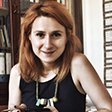
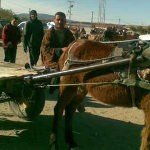
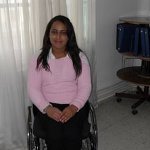
.jpg)



